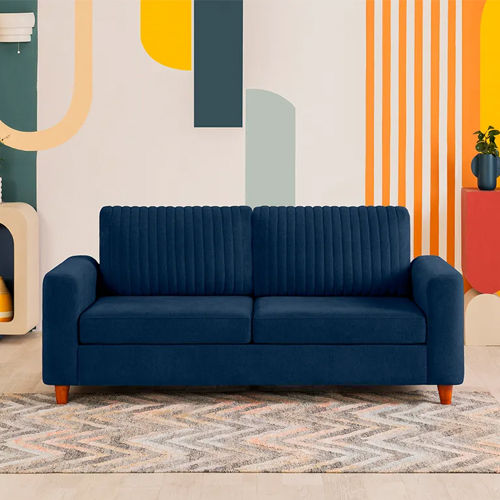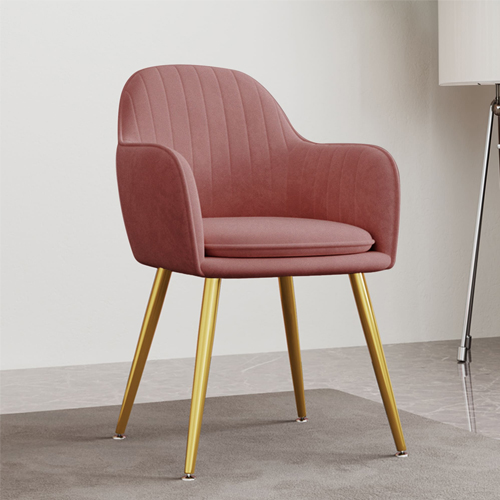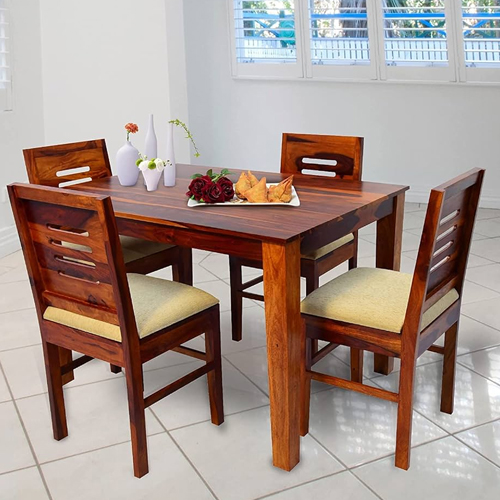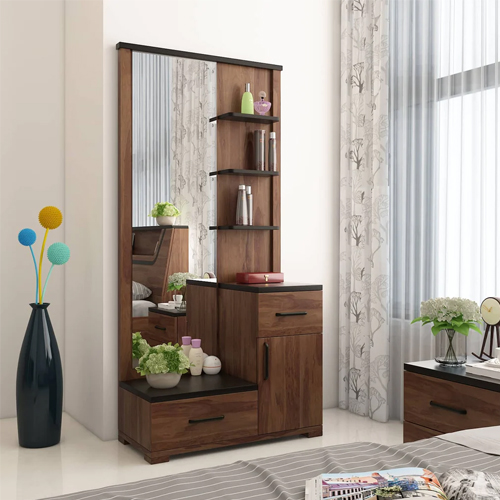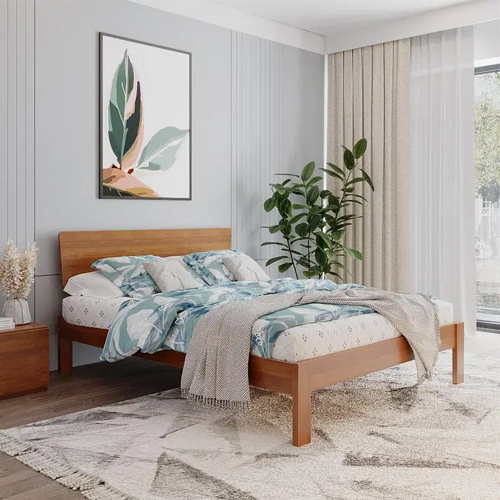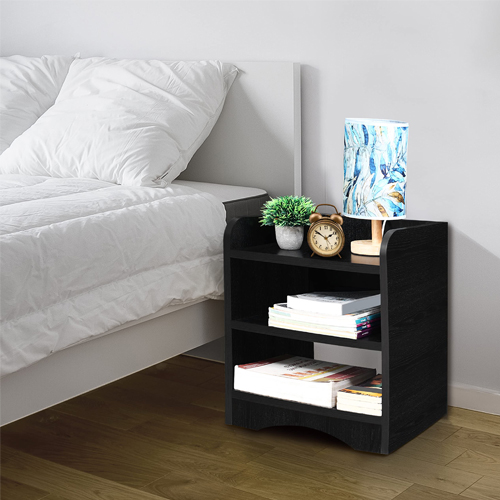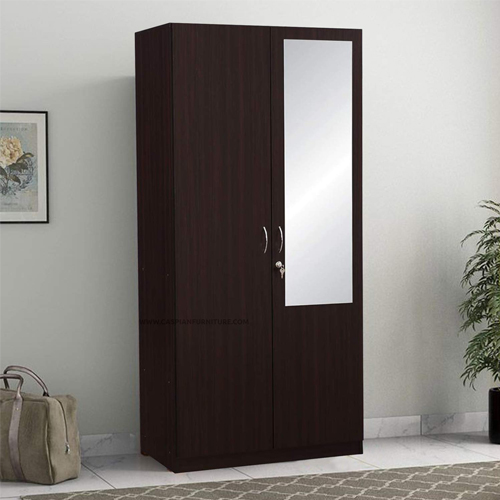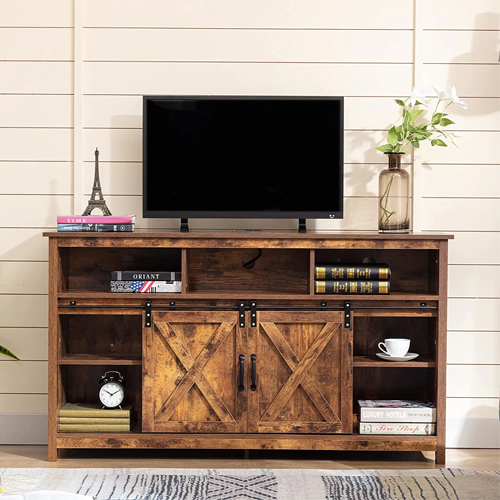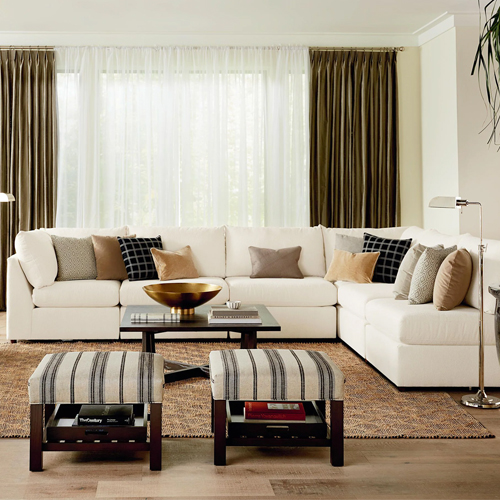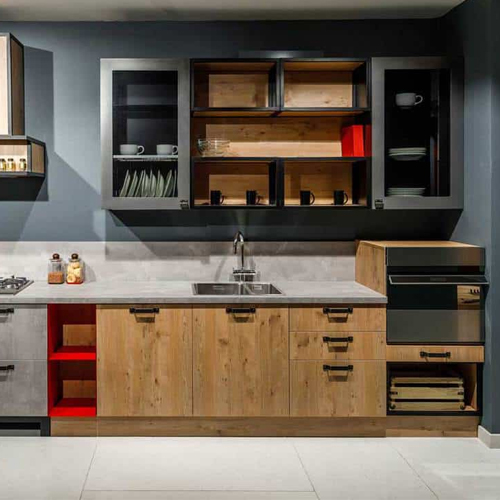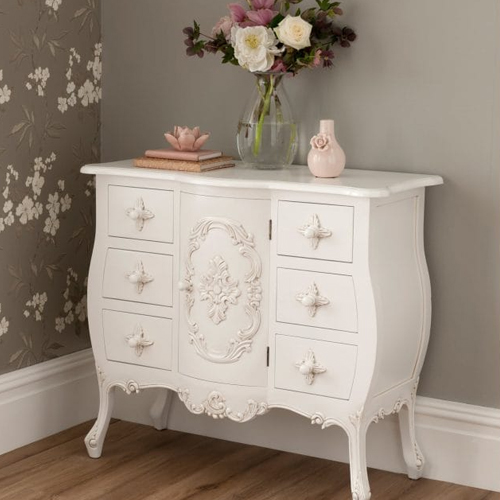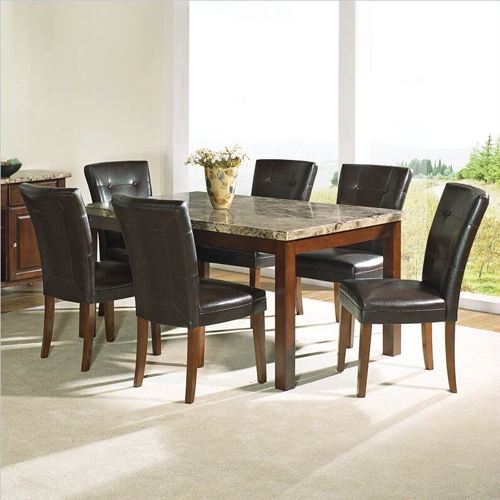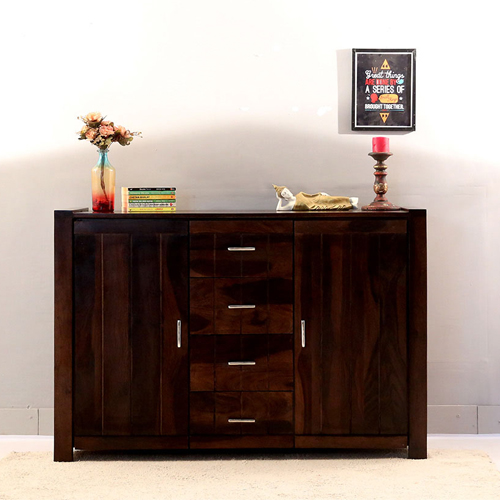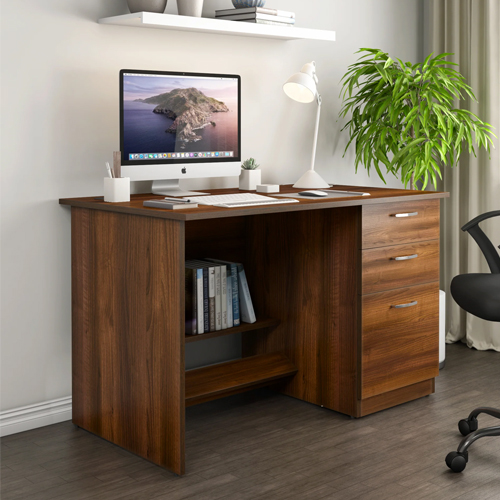
Study Table
Rs.
Rs.
- MaterialSheesham wood
- FinishHoney finish
- StorageWith storage
- Dimensions (Inch)50 L x 22 W x 30 H
- Dimensions (Cm)127 L x 55.9 W x 76.2 H
-
Size and Space:
Measure the available space in your study or workspace to determine the appropriate size for the table. Consider both the table dimensions and the space required for chairs, storage, and movement. -
Storage Options:
Evaluate your storage needs. Some study tables come with built-in drawers, shelves, or cabinets, providing convenient storage space for books, stationery, and other study materials. -
Material:
Study tables are made from various materials, including wood, metal, glass, and laminate. Consider the durability, aesthetics, and maintenance requirements of the material. Choose a material that aligns with your preferences and fits your budget. -
Style and Design:
Consider the overall style and design of the study table. It should complement the decor of your study or workspace. Whether you prefer a minimalist, modern, classic, oreclectic style, choose a table that fits your aesthetic preferences. -
Adjustability and Ergonomics:
If you spend extended hours working or studying, consider an adjustable or ergonomic study table. Look for features like adjustable height, tilt, or built-in ergonomic design promote comfort and reduce the risk of strain. -
Workspace Configuration:
Evaluate the configuration of the workspace on the table. Ensure there is enough surface area for your computer or laptop, writing materials, and other accessories. Some tables come with dedicated spaces for keyboards, monitors, or cables. -
Cable Management:
Consider a study table with built-in cable management features if you have multiple electronic devices. This helps keep cables organized and prevents clutter. -
Mobility:
If you need to move the table frequently or reconfigure your workspace, consider a table with wheels or casters for easy mobility. -
Durability:
Choose a study table that is sturdy and durable. Consider the construction, quality of materials, and the reputation of the manufacturer or brand. -
Ease of Maintenance:
Consider the ease of cleaning and maintenance. Some materials and finishes are more resistant to stains and scratches, making them suitable for a study environment. -
Budget:
Set a budget for your study table purchase. Prices can vary based on the material, design, and brand. Find a balance between your budget and the quality of the table. -
Brand Reputation:
Choose study tables from reputable manufacturers or brands known for producing quality furniture. Reading reviews and seeking recommendations can help you make an informed decision. -
Assembly:
Consider the assembly requirements of the study table. Check whether it comes pre-assembled or if assembly is required. Ensure that the assembly process is straightforward. -
Regulatory Compliance:
Ensure that the study table complies with safety and quality standards. Check for certifications and compliance with relevant regulations, especially for products intended for commercial or educational use.
By carefully considering these factors, you can select a study table that not only meets your practical needs but also contributes to a comfortable and organized study or work environment.
